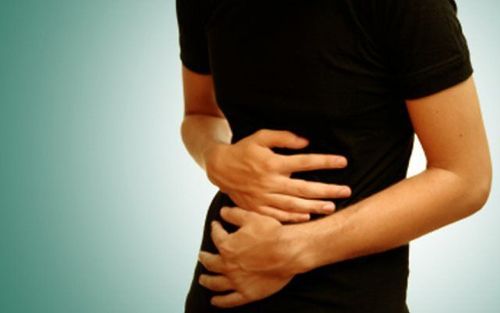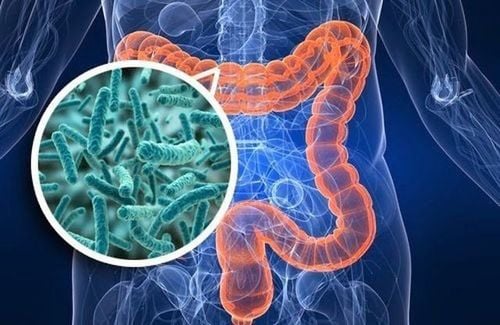This is an automatically translated article.
Many people have the habit of eating fast and eating quickly. This can lead to weight gain and other health problems. Eating slowly and chewing thoroughly is a smarter approach because it can bring a number of benefits, including chewing thoroughly and losing weight.1. Eating too fast can cause weight gain
Fast eaters tend to gain weight more easily than slow eaters. In fact, fast eaters are 115% more likely to be obese than slow eaters.In a study of 4,000 middle-aged adults, those who said they ate very quickly gained weight and began to gain the most significant body weight since the age of 20. Another study followed weight change in 529 men for 8 years. In the study, people with a fast eating habit gained more than twice as much weight as those eating slowly or eating at a moderate pace.
In summary, many studies show that people who eat fast tend to be heavier and gain more weight than people who eat more slowly.
2. Eat slowly and chew well to help lose weight
Appetite and calorie intake are largely controlled by hormones. After a meal, the gut blocks a hormone called ghrelin, which helps control hunger, and releases a hormone that makes you feel full. These hormones send signals to the brain that you've eaten, reduce appetite, make you feel full, and help you stop eating. This process takes about 20 minutes, so eating slowly and chewing thoroughly will give brain cells enough time to recognize these signals.2.1 Eating slowly can increase the production of satiety hormones Eating too quickly often leads to overeating, because your brain doesn't have enough time to receive the satiety signal. In addition, eating slowly has been shown to reduce food intake during meals due to an increase in satiety hormones.
In one study, 17 healthy people with normal weight ate 300g of ice cream on 2 occasions. In the first time, they ate ice cream in 5 minutes, but in the second time, they spent 30 minutes. Feelings of fullness and satiety hormone levels were found to be significantly increased after the second gradual intake of ice cream. In a follow-up study conducted in people with diabetes, as well as being overweight or obese, eating slowly and chewing thoroughly did not increase satiety hormones. However, it significantly increases the satiety rate.
Another study found that young people with obesity had higher blood levels of satiety hormones when they ate slowly.
2.2 Eating slowly can reduce the amount of calories added to the body In one study, normal weight or overweight people ate at different rates. Both groups added fewer calories at the slowest rate, although the difference was only statistically significant in the normal weight group.

Bạn sẽ cảm thấy no lâu hơn nếu ăn chậm, nhai kỹ
2.3 Slow eating promotes thorough chewing To eat slowly, you need to chew your food well before swallowing. This can help reduce calorie intake so many people believe that chewing well helps with weight loss.
In fact, some studies have found that people with weight problems tend to chew their food less than people of normal weight. In one study, researchers asked 45 people to eat pizza until they were full, and they chewed at different speeds. The average calorie intake was reduced by 9.5% when people chewed 1.5 times more than usual and nearly 15% when they chewed twice as much as usual.
Another small study noted that calorie intake decreased and satiety hormone levels increased as the number of chews per piece increased from 15 to 40. However, there may be a limit to the number of chews per person should take to enjoy the meal. One study found that chewing each bite for 30 seconds reduced the need for later snacking but also significantly reduced feelings of mealtime enjoyment.
In short, chewing food thoroughly will slow down the rate of eating and reduce calorie intake, which in turn can lead to weight loss.
3. Other benefits of eating slowly
Eating slowly can also improve health and quality of life in other ways, based on the following benefits:Increases ability to enjoy meals Supports and improves the functioning of the digestive system Helps the body absorb Better nutrient intake Form a calmer and more manageable personality Reduce stress levels In summary, there are many other good reasons to eat slowly and chew more thoroughly, including improved digestion and reduced stress .

Ăn chậm có thể giúp bạn giảm mức độ căng thẳng
4. How to eat slowly, chew well, lose weight
Here are some tips to help you start eating more slowly:Avoid getting too hungry. It is difficult to eat slowly when the body is feeling very hungry. To stave off extreme hunger, have some healthy snacks on hand. Chew carefully. Count how many times you usually chew a piece of food, then double that number. Many people may be surprised at how little they usually chew. Put your eating utensils down. Putting your fork down between servings will help you eat slower and enjoy every bite. Choose foods to chew. Focus on fibrous foods that require a lot of chewing, such as vegetables, fruits, and nuts. Fiber can also promote weight loss. Drink water. Make sure to drink plenty of water or other zero-calorie beverages with your meal. Use a timer. Set a timer for when to start eating for 20 minutes and try your best not to finish the meal before the siren sounds. Try to have a slow and consistent eating rate throughout the meal. Turn off your phone or TV screen. Try to avoid electronic devices, such as televisions and smartphones, while eating. Deep breath. If you start eating too quickly, take a deep breath. This will help you refocus and stay on track. Practice conscious eating. Mindful eating techniques help you pay more attention to what you're eating and control your cravings. Patient. Change takes time, on average it takes about 66 days for a new behavior to become a habit. In short, consistently practicing some of the techniques mentioned above can make eating slowly easier and more sustainable.

Đừng để bản thân rơi vào trạng thái quá đói nếu muốn ăn chậm
It can be seen that eating slowly and chewing thoroughly always brings many benefits to gastrointestinal health and weight problems. Therefore, pay attention to your eating habits during the day to get the most practical benefits.
Please dial HOTLINE for more information or register for an appointment HERE. Download MyVinmec app to make appointments faster and to manage your bookings easily.
Reference source: healthline.com












